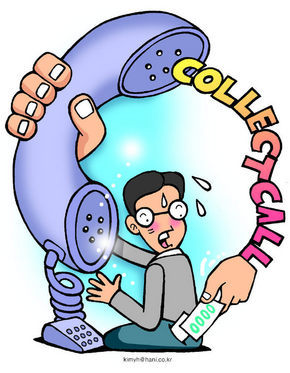 |
Collect calls from the Philippines, China driving up phone bills
A resident living in Eunpyeong-gu, Seoul, identified as Kim, received an international collect call from the Philippines last month. The caller spoke in Korean, though inarticulately, and mentioned the name of one of Kim’s family members. The caller asked Kim to tell him his address, because "he had something to send by parcel post." Kim asked the caller to identify himself, but the caller just kept asking for Kim’s address, repeating that he could not hear Kim’s question very clearly. In the end, Kim gave the man his address, though by then the call had lasted over five minutes. Nothing arrived by mail, but what did arrive was a charge for 10,000 won (US$10) for the collect call. A citizen in Cheongju experienced a similar event due to an international call from China, and informed the Consumer Protection Board about the incident. An increasing number of South Koreans have been receiving mysterious international collect calls. According to data provided by one of South Korea’s communications companies, there were no such complaints in October of last year, but 37 in November and 49 in December.Such fraud cases are not only happening to residences, but to companies and schools, as well. Jeonbuk National University began to receive collect calls from the Philippines last month. The conversations varied from requesting counsel about studying at the university to inquiring about information regarding the school. The school authorities posted a notice about such bogus calls on the school bulletin, but the school estimates that its financial loss has already been significant. About 15-20 percent of the charges for the collect calls reportedly go to the telecommunications companies in China or the Philippines that are handling the call on that end. However, because the persons or entities making the calls from the Philippines or China are using temporary telephone numbers, it has been difficult to track down those responsible and shed light on the exact nature of the fraud scheme. The Ministry of Information and Communication has been urging related South Korean communications companies to take measures since June of last year, but said that overall it is not possible to prevent such calls from coming. Please direct questions or comments to [englishhani@hani.co.kr]





